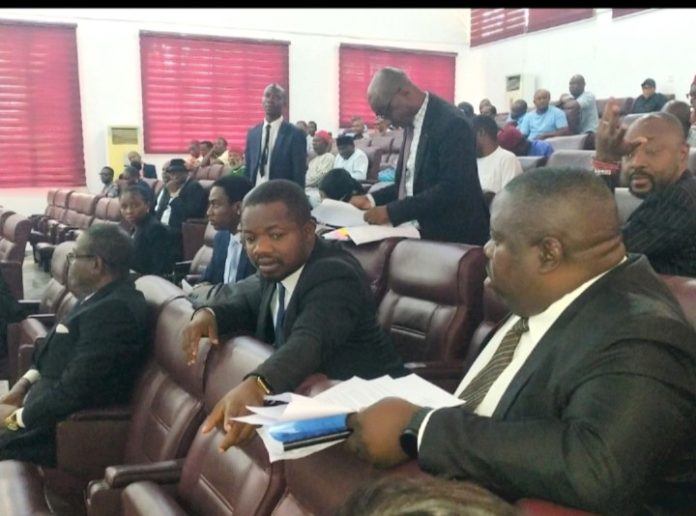In a dramatic development during the recently concluded panel of inquiry into the Ogwashi-Uku Kingship dispute, two senior members of the Okonjo Royal Family, Prince Nathan Okonjo and Prince Ikechukwu Okonjo, have formally contested the eligibility of Obi Ifechukwude Aninshi Okonjo to the Ogwashi-Uku throne.
The duo voiced their objections while giving evidence at the inquiry, which is investigating the ongoing kingship tussle and land disputes between Ogwashi-Uku and its neighboring communities. Prince Nathan Okonjo, who filed a petition against the incumbent monarch, claimed that Obi Ifechukwude Okonjo was not the rightful heir to the throne. He argued that, according to traditional law, ascension to the throne should be based on the principle of primogeniture — the right of the first-born male child. He stated that since Obi Ifechukwude is neither the first nor second male child of the late Obi Prof. Chukwuka Okonjo, he could not legally be the monarch.
During his testimony, which was led by his legal counsel, Simion Ngbakor Esq, Prince Nathan Okonjo traced the historical lineage of the Ogwashi-Uku throne, recalling that the last legitimate king who ascended by the principle of primogeniture was King Obahan. He further explained that after King Obahan’s reign, the system was abandoned, and the selection of kings became more arbitrary. Prince Nathan emphasized that, according to this traditional system, neither Obi Ifechukwude nor his predecessor should have been crowned as king due to their lineage not being entitled to the throne.
However, under cross-examination by Counsel to Obi Ifechukwude Okonjo, Prince Chike Onyemenam, SAN, Prince Nathan conceded that the State High Court had dismissed the suit challenging Obi Ifechukwude’s eligibility to the throne in 2001. Furthermore, he acknowledged that an appeal of the judgment is currently scheduled for hearing before the Court of Appeal on January 15, 2025. Prince Nathan has urged the Court of Appeal to overturn the High Court ruling and recognize him as the rightful heir to the throne. The High Court judgment and the ongoing appeal were presented as evidence during the proceedings.
Prince Ikechukwu Okonjo, another claimant to the throne, also provided evidence during the inquiry, reiterating that the central issue was Obi Ifechukwude’s eligibility. Like his brother, Prince Nathan, he claimed that Obi Ifechukwude was a distant third male child of the late Obi Prof. Chukwuka Okonjo, further undermining his legitimacy. Prince Ikechukwu also stated that according to Ogwashi-Uku native law, no person with a criminal conviction can be crowned as king. This assertion was supported by the introduction of an alleged conviction from Montgomery County Court in Maryland, USA, which was admitted as an exhibit.
In a separate testimony, Prince Ikechukwu Okonjo, the elder brother of Obi Ifechukwude Okonjo, expressed frustration over being sidelined in the kingship selection process. He argued that in the absence of the first-born male, he should have been crowned king. Prince Ikechukwu provided written affidavits and other documents to support his claim, presenting them as exhibits to the panel. He also admitted that a suit challenging the incumbent monarch’s right to the throne was currently pending at a State High Court, following a referral from the Supreme Court for retrial. He remains hopeful that the court will ultimately rule in his favor, restoring his rightful place as the king.
The ongoing inquiry continues to cast a shadow over the legitimacy of the current monarch, and with multiple legal battles ahead, the people of Ogwashi-Uku remain uncertain about who will ultimately be recognized as the rightful king.



